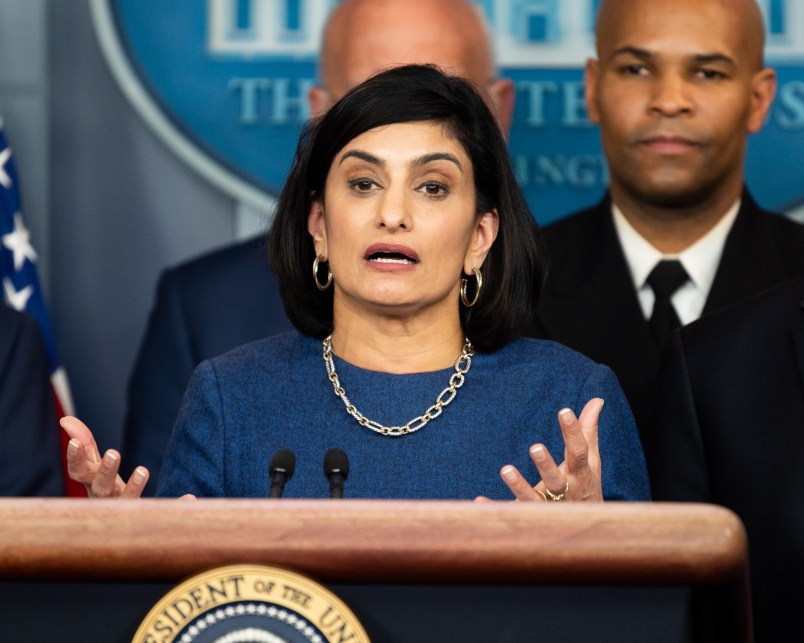In what has been a bleak environment for health care practices dealing with the effects of COVID-19, Saturday brought providers a bit of good news.
The Trump administration announced a new policy that will give health care providers a much-needed revenue boost, as their typical financial models have been scrambled by the pandemic.
Specifically, the federal office in charge of implementing Medicare announced that it was allowing all types of providers to get upfront Medicare payments for services they expect to bill in the months to come.
“With our nation’s health care providers on the front lines in the fight against COVID-19, dollars and cents shouldn’t be adding to their worries,” said Center for Medicaid and Medicare Services Administrator Seema Verma in a statement Saturday. “Unfortunately, the major disruptions to the healthcare system caused by COVID-19 are a significant financial burden on providers. Today’s action will ensure that they have the resources they need to maintain their all-important focus on patient care during the pandemic.”
These types of payments — called “accelerated” or “advance” payments — have been made available in the past only for critical-care providers, like hospitals, who face a cash crunch while scaling up for natural disasters and other localized emergencies.
But under the new policy — which was made possible by the $2.2 trillion stimulus bill President Trump signed into law Friday — primary care doctors and other types of providers will now also be able to apply for the upfront Medicare payments.
As TPM reported last week, even in places not particularly hard hit by the coronavirus, primary care doctors and other providers have faced a dire financial situation. They’re seeing a serious drop of in-person visits, a major source for revenue, due to the directive that Americans avoid non-essential in-person interactions. As their cash-flow dries up, many clinics have laid off staff and fear that they’ll need to close down entirely in a matter of weeks. Beyond making sure these practices are still operational at the end of the pandemic, they’ll need to be the front line of defense for when the virus hits their communities.
The new policy will “give Medicare providers the ability to get emergency funding for short-term cash flow problems that they may be experiencing,” said Juliette Cubanski, the deputy director of Kaiser Family Foundation’s Program on Medicare Policy. Those cash flow problems are being created by both the increase in services being given to COVID-19 patients, and the decline in revenue from non-essential health care services that have been put off during the pandemic, Cubanski said.
The new CMS policy lays out a formula for determining how much money each type of provider can get upfront. It also extends the timeframe during which practices must pay back any excess payments they claim for services they did not ultimately provide.
The expansion of upfront payments to essentially all Medicare providers who meet the requirements, and not just hospitals, reflects the unique way this pandemic is affecting the entire U.S. health care system.
“The issues are not just for hospitals, which may typically get these payments in emergency situations, but doctor’s offices and other types of providers,” Cubanski said.







Let me guess, The Trump University Skool of Medical Stuff just granted the entire Trump Family medical degrees…
Our nation’s doctors are all Wimpy now. I’ll gladly pay you Tuesday for a hamburger today.
In all seriousness, I’m happy about this. Private practice doctors operate a small business that often runs on thin margins. Without adequate cash flow, it means laying off employees, difficulty with rent payments, insurance premiums, light bills, etc.
Since it’s just a payment in advance, it shouldn’t raise the deficit.
And maybe now they’ll stop selling PPE on the black market.
O ye of little imagination!
So many new opportunities for corruption.
eta…I am glad that some real attention is being paid to the overburdened medical community that is also facing the same economic uncertainty as the rest of us.
I’m actually telling my doctor friends to take the money, and see what happens. Worst case scenario, as I understand it, is it’s a zero interest loan.